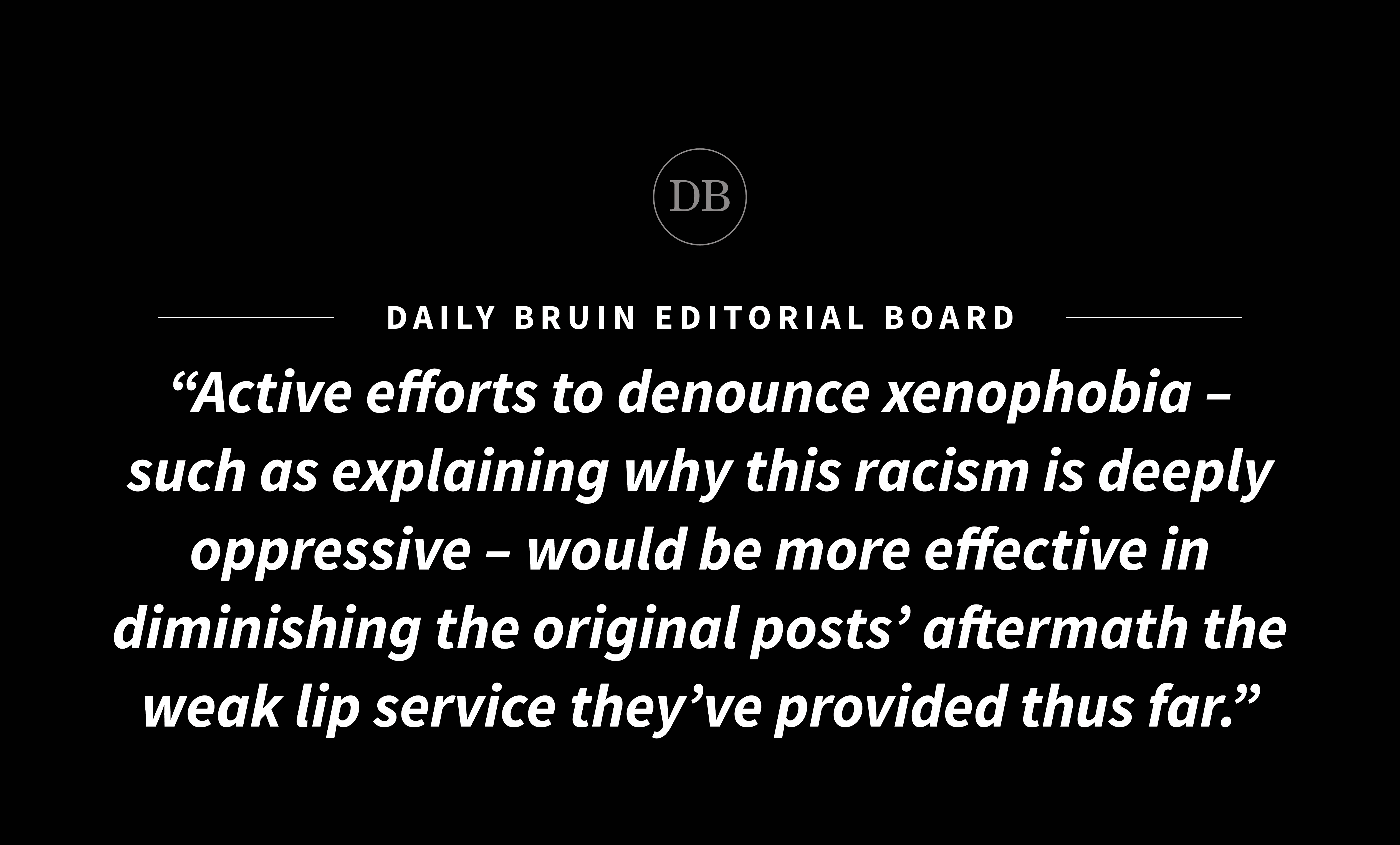Editorial: Berkeley’s apology for coronavirus post isn’t enough to address racism

By Daily Bruin Staff
Feb. 5, 2020 10:51 p.m.
Getting your vaccinations before the flu season is normal. Dressing warmly to avoid catching a cold is normal.
But avoiding Asian people because you think they might have the coronavirus is not normal. It’s racist.
Whether it was a lack of copy editors or oversight from administration, UC Berkeley failed to convey this message in a now-deleted post addressing students’ psychological symptoms following the coronavirus outbreak.
The post came from the university’s health services Instagram account and stated that, alongside anxiety and anger, a common reaction to the spread of coronavirus might be “Xenophobia: fears about interacting with those who might be from Asia and guilt about those feelings.” The same language was also repeated in a handout embedded on the university’s official health services website. UC Berkeley later deleted the post from its account and removed the statement from its pages.
Apologies and issued statements aside, the damage had already been done.
It’s fair to acknowledge that the racism against Asian people has been a concern since the coronavirus spread from Wuhan, China. Many articles have been published recently documenting coronavirus-affiliated acts of racism. Failing to acknowledge so would signal ignorance. But neglecting to condemn such behavior and better inform students only serves to justify discrimination as a “normal” response.
The post came from a university-run account, one that holds both massive reach and authoritative credibility. With that in mind, UC Berkeley’s rather toothless apology is perhaps most detrimental.
Although the university has retracted the original description, its failure to condemn bigotry renders its apology practically useless. Hundreds – if not thousands – saw the posts, and received validation of their prejudice as a result.
Active efforts to denounce xenophobia – such as explaining why this racism is deeply oppressive – would be more effective in diminishing the original post’s aftermath than the weak lip service the school has provided thus far. All it takes is another hour of design work and maybe 500 more words to inform students about these issues, and a research university can’t cry a lack of educational resources.
The university’s apology over the post coincided with Berkeley’s decision to remove John Boalt’s name from the law school at the end of January because of his legacy of mobilizing support for anti-Chinese legislation such as the Chinese Exclusion Act.
For a university with nearly 40% of its students being of Asian descent, such ignorantly contradictory messaging is more than questionable.
Conspiracy theories do enough to fuel the fire of public hysteria and myths about the effects and sources of the coronavirus. They perpetuate misinformation about the virus’ origins and people carrying the microbe, and false reporting could exacerbate a culture of fear of Asian people – the vast majority of whom will likely never come into contact with someone carrying the virus.
Adding to mass panic by normalizing xenophobia is the last thing an institution of this size and influence should do.
It’s clear the university is aware xenophobia and racism are realities and acknowledging the harm it does to students isn’t unwarranted. But realities don’t equate to normalcy.
And UC Berkeley hasn’t done enough to ensure its students – and its social media managers – know that.


